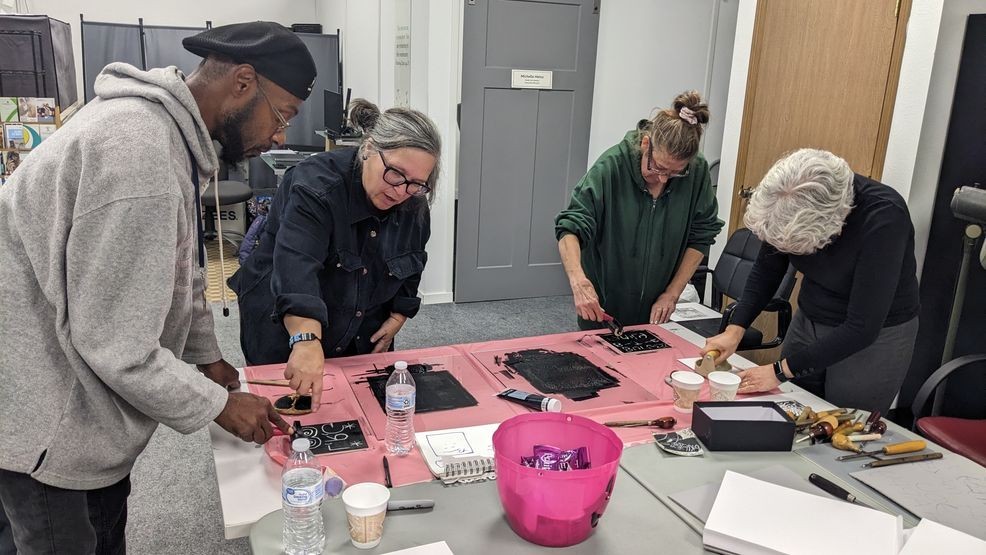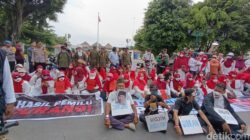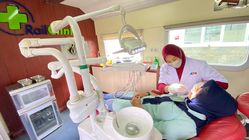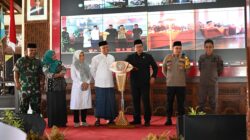For many Iowans leaving prison, freedom marks the beginning of another battle — one that involves finding a job, securing housing, and rebuilding a life in a world that may have moved on without them.
Robert Pannier, Bradley Bramer and Eddie Walker all served time — Pannier in Minnesota, and Bramer and Walker in Iowa.
Despite being free, each of them faced a difficult truth: starting over is hard.
Tolong support kita ya,
Cukup klik ini aja: https://indonesiacrowd.com/support-bonus/
More Coverage:
Special Report: Life after lockup, the reality of reentering society after prison
“You’re looked at with the red X on your back as a felon,” said Walker, who described post-prison life as landing in a different world after serving 18 years. “Family that was little kids are now adults.”
Bramer echoed similar challenges. “Starting over constantly is a huge headache,” he said.
Unlike many others, Pannier had a unique advantage. While incarcerated, he learned programming, which gave him the skills he needed once he was released.
“I was able to use that to really give myself a chance to thrive once I got out of prison,” he said.
But for most, successful reentry requires more than skills. It also requires support.
That’s where organizations like
Inside Out Reentry in Johnson County
step in. Michelle Heinz, who leads the nonprofit as its executive director, said their team connects with individuals before they’re released to prepare them for life on the outside.
“They often say finding a job or housing is one of the most stressful things. When you’re getting out, you’re doing all of them at once,” Heinz said. “We assist individuals with finding housing, employment, and getting connected to community resources — which could be getting signed up for Medicaid, SNAP, or finding ID.”
Walker found that community at Inside Out, and eventually became a coaching mentor there. After completing his community service at Parkview Church in Iowa City, he now works as a property manager and credits the nonprofit with helping him find his way.
“I felt with my family at Inside Out, I had core,” Walker said.
Bramer also received support through the
RISE Program in Linn County
and now holds a union job. Meanwhile, Pannier moved to Cedar Rapids in 2021. He’s giving back by running
Hope CDA, a Christian-based recovery and reentry program in Cedar Rapids
that helps men fight addiction and rebuild their lives.
“I love every one of these guys that comes here, and I want to see them thrive,” Pannier said.
Mike Cervantes,
reentry organizer with Living Beyond the Bars
, said they offer support from day one.
“We’re there to help them find resources and support and a place to live before they get out,” he said. “The prisons do a decent job helping people get ready, but we just supplement that.”
The need for this kind of support continues to grow. After a brief dip following the pandemic, Iowa’s recidivism rate climbed again in 2024. Iowa Department of Corrections Director Beth Skinner said it’s the second time the state has had the lowest recidivism rate within the last six years, and collaboration is essential.
“It takes a village,” Skinner said. “Corrections can’t do it all. We have to rely on our partners.”
Those partners include grassroots organizations, community colleges, Iowa Workforce Development, the Department of Transportation, and organizations like NAMI — all working together to support returning citizens through education, job readiness, and mental health care.
For people like Walker, Bramer and Pannier, that kind of support is more than a safety net — it’s a lifeline.







